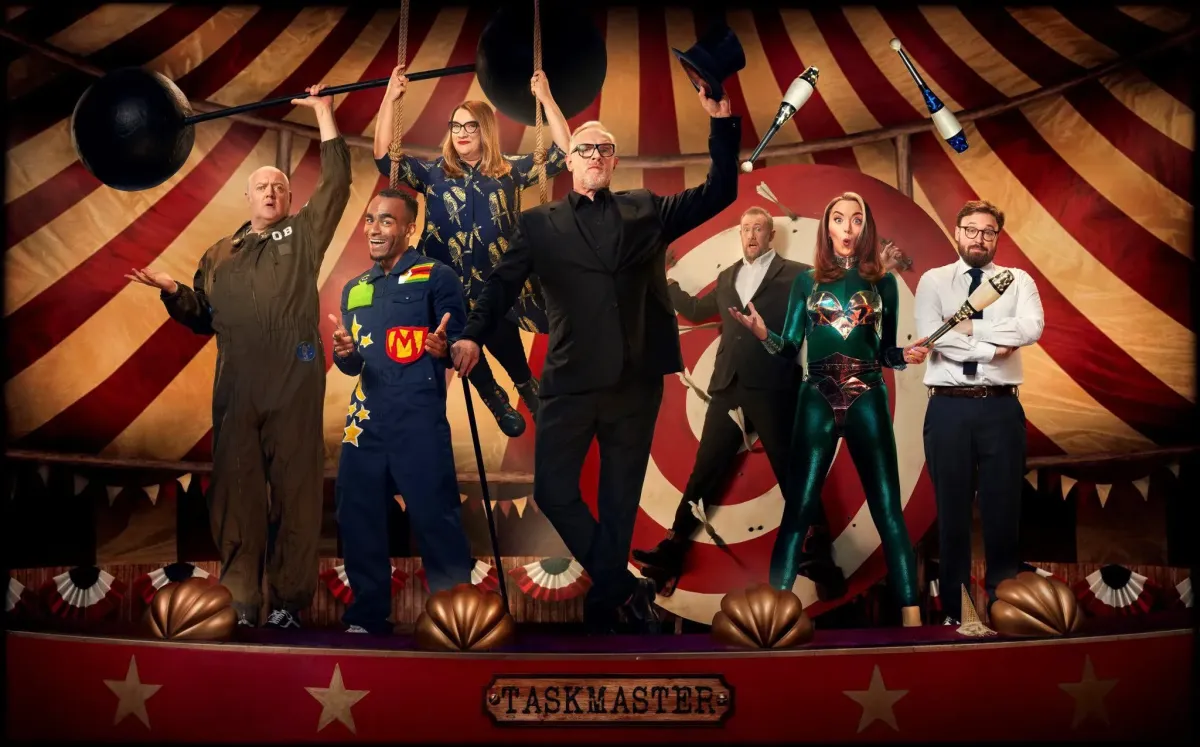Inclusive Change
Start the conversation
Read our blogs and discover more about neurodiversity through our links


Taskmaster and Being Neurodivergent
Taskmaster and the Neurodivergent Community
Taskmaster has been a special interest of mine for a while now. I had seen clips on YouTube and recall seeing one episode of series 6 while on holiday, but I never really felt the desire to go out of my way to watch it. However, it was during 2020 that my love for the show really took off.
With nothing better to do, for obvious reasons, and Channel 4 recently acquiring the show, Taskmaster became a lot more readily available for me. It certainly didn’t help that the series 10 line-up had been announced, and seeing both Johnny Vegas and Katherine Parkinson sit side-by-side (granted, with a distance between them) immediately drew me further in.
And thus, I was hooked.
This opened up a whole new world for me. Before, I barely knew any celebrities or comedians. Now? I know a lot of names within the British comedy circuit. Not only that, but the New Year’s Treats introduced some famous faces to me that I had never heard of - you know Deborah Meaden from Dragons’ Den? I know her from Taskmaster. We are not the same.
The Emotional Bond
But, where I think Taskmaster has truly captured my heart is in the way you frequently get a sense of connection with the competitors, whether it's just because ‘this person is likeable’ or ‘they seem lovely to be around’. I mean, don’t get me started on Nick Mohammed, the man’s adorable!
It’s normal to gravitate toward someone in these types of shows, like when you pick a favourite team in Hunted, person in The Traitors, or castaway in Survivor (Luke Toki, for the win!). You end up rooting for them, and feel heartbroken when it doesn’t work out. And when you find multiple other people who feel the same way, it gives a sense of belonging and community.
To someone who’s neurodivergent, community is something that many struggle to find in the ‘real world’, making it all the more meaningful when they can share their special interest with someone who cares just as much. And trust me, people care about this show. Don't believe me? Check out Taskmaster.info or any of Jack Bernhaldt's posts on X. The guy loves stats, and so do the rest of us!

Lucy Beaumont - of series 16 fame - puts it best:
“There’s a really amazing neurodivergent community online who feel like it’s theirs, and it’s connected neurodivergent young people from all around the world. It’s been really amazing to see that from the inside.”
I’ve found that being a part of these communities helps me in other parts of my life. It’s given me self-confidence in both getting involved with conversations but also given me the ambition to want to start attending stand-up gigs. My goal is to see as many Taskmaster contestants as I can. The point is, it’s made such an amazing and positive impact on my own personal wellbeing.
Who’s Fern Brady?
With series 14, the line-up reveal got me really excited, in particular for the debut of Fern Brady, Taskmaster’s first openly Autistic contestant. While there have been other neurodivergent contestants before and after, Fern was the first that was really ‘out there’ with her diagnosis.
Watching Fern feel comfortable being weird around others on TV made me wish that she was around when I was younger. Having her as a ‘role model’ would have done wonders for not just me.
In terms of Fern and Taskmaster specifically, it’s amazing to have some representation on one of my favourite shows. It means the world to me, and many Autistic fans I’m sure, that there’s someone ‘like you’ being in such an incredible position.
Fern stated in interviews how great she felt as an Autistic person to be on Taskmaster:

“On the last day of filming the Channel 4 comedy series Taskmaster, Fern Brady tells me, she began to cry. “Because I knew there wasn’t going to be another job like it. I just knew,” the Scottish comedian explains.” - Teddy Jameison
She speaks a lot about her experience on Taskmaster and how she let herself unmask as Autistic and feel real joy in being able to express herself properly.
"Taskmaster is the greatest job I've had in my life." - Fern Brady, as said here
Taskmaster Celebrates Neurodiversity
I personally believe that Taskmaster is a show that truly, unequivocally celebrates neurodiversity. It rewards all different types of approaches to tasks, and even if you don’t get high points, you’re still awarded a round of applause for out-of-the-box thinking.
Those who are neurodivergent typically approach situations in a way that wouldn’t make sense to neurotypical thinkers, which can sometimes lead to results where they’re mocked or labelled ‘weird’.
Yet on Taskmaster, you’re actively encouraged to try something different and be weird! If anything, the weirder you are, the better. Chaos is celebrated! There’s no real consequences to doing poorly or well (unless you bring in your wedding ring, Romesh).
Neurodivergent people often get caught up in doing the ‘right thing’ or following the rules, and can shut down when expectations aren’t met, but Taskmaster tells you exactly what you need to do to complete the task and any way you choose to interpret those rules is seen as valid. Then if they break the rules or perform terribly, they have a laugh and move on. They’re there to entertain people, not to do well - unless you’re Ed Gamble and you want so desperately to do both.
Taskmaster is also said to be really accommodating and a welcoming environment. Fern shared that it’s the most comfortable she’s ever felt doing a panel show, and everyone takes extra care in making sure that you are happy being there.
For example:
Mae Martin’s pronouns being respected without fail, and reportedly the one time they messed up, they re-shot the scene to correct it.
Iain Stirling being genuinely upset and not wanting to talk about his performance, which Greg responded with a “that's absolutely fine” before moving on.

Contestants are pushed out of their boundaries and encouraged to do silly things, but they’re never made to do anything they really don’t want to and no one is treated negatively for it. When you’re neurodivergent, you kind of get used to letting your boundaries be broken or pushed by societal norms - like shaking hands or being unable to leave after feeling overwhelmed. It’s so exhausting, physically and mentally. An environment like Taskmaster, where you’re respected and can be your unapologetic self, is nothing short of heaven, and it’s no wonder why both neurodivergent fans and contestants alike flock to the show.
Where Does Inclusive Change Come Into Things?
Imagine if all workplaces embraced the same principles that Taskmaster did. Picture a work environment where diversity is celebrated, support is abundant, reasonable adjust and creative problem-solving is the norm. This isn’t just wishful thinking; it’s a vision we can all achieve.
At Inclusive Change, we strive to make this a reality. Our mission is to build the future of work with neurodiversity in mind. If you want to find out what sorts of services we can provide to help reach this goal, visit our site here: ND for organisations.
Check out Lucy's other features

A Journey of Neurodiversity Advocacy and Change
Read Lucy's interview with Golden Valley, where she explains some of the life events that led her to becoming a full time advocate for neurodivergent and disabled people in the workplace.

Women in the Middle® Entrepreneurs:
EP #52: Sharing the Positives About Neurodiversity with Lucy Smith
Suzy Rosenstein, a master life coach, hosts a podcast called Women in the Middle Entrepreneurs, a podcast where these important conversations about the intersection of being a midlife entrepreneur who's also a woman 50 plus can happen.
Inclusive Change Ltd
The Brightwell, Bradbury House
Wheatfield Drive
Bradley Stoke, Bristol
BS329DB
Copyright 2025 - Inclusive Change Ltd
Companies House: 12412464
VAT NO: 352 1564 17
ICO Reg: ZB081779
UK Register of Learning Providers: 10090652
Reg no: 12412464




